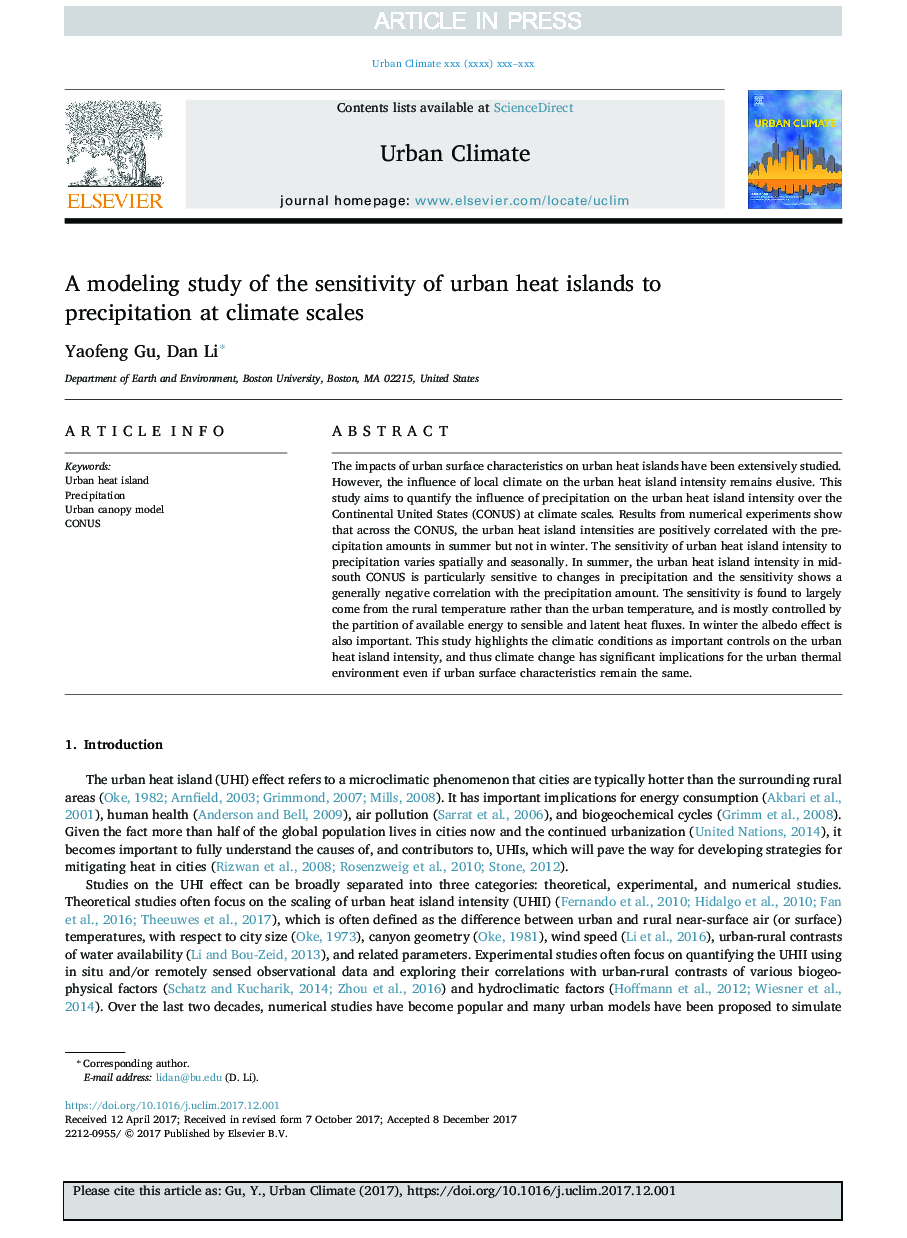| Article ID | Journal | Published Year | Pages | File Type |
|---|---|---|---|---|
| 6576938 | Urban Climate | 2018 | 12 Pages |
Abstract
The impacts of urban surface characteristics on urban heat islands have been extensively studied. However, the influence of local climate on the urban heat island intensity remains elusive. This study aims to quantify the influence of precipitation on the urban heat island intensity over the Continental United States (CONUS) at climate scales. Results from numerical experiments show that across the CONUS, the urban heat island intensities are positively correlated with the precipitation amounts in summer but not in winter. The sensitivity of urban heat island intensity to precipitation varies spatially and seasonally. In summer, the urban heat island intensity in mid-south CONUS is particularly sensitive to changes in precipitation and the sensitivity shows a generally negative correlation with the precipitation amount. The sensitivity is found to largely come from the rural temperature rather than the urban temperature, and is mostly controlled by the partition of available energy to sensible and latent heat fluxes. In winter the albedo effect is also important. This study highlights the climatic conditions as important controls on the urban heat island intensity, and thus climate change has significant implications for the urban thermal environment even if urban surface characteristics remain the same.
Related Topics
Physical Sciences and Engineering
Earth and Planetary Sciences
Earth and Planetary Sciences (General)
Authors
Yaofeng Gu, Dan Li,
